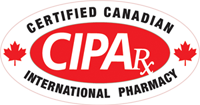Pharmacist's Corner
The key to staying on schedule
with your daily medications
If you take a medication (or more than one) every single day, is it really such a big deal if you miss a day now and then? Will your health be harmed if you skip a pill on occasion, either by accident or by purpose?
The answer is yes!
If you have a chronic health condition, such as high blood pressure or high cholesterol as just two common examples, you have that condition every single day. It doesn't come and go like a common cold, and unfortunately, it's not likely to get better on its own (although for many conditions, proper diet and exercise can help maintain your health and manage chronic disease).
Because your health condition doesn't go away, adherence to therapy - which means taking your medication exactly as prescribed every single day - is critically important. In fact, it is estimated to be a $300 billion dollar problem, according to Prescriptions for a Healthy America. Adherence to therapy helps to effectively manage your illness to prevent the disease from progressing. It also reduces the number of times you have to see your doctor, and reduces the risk of visits to the ER and longer-term hospitalization. And, staying healthy saves you money, which is certainly a nice additional benefit!
There are several factors that can lead to poor adherence to medication schedules. Here's a list of a few factors, and what you can do to "stay on schedule" no matter what:
- Patient factors. This includes lack of understanding of your prescriptions, what they do, or how often you should take them. The solution to this is quite simply to ask! Whenever you are given a new prescription, ask the doctor or the pharmacist to explain it to you, including exactly when you should take it, and any side effects or interactions with other drugs, vitamins, foods/drinks you should be aware of.
- Doctor considerations. Patients often see multiple doctors, and each visit with a doctor can be short and sometimes confusing. This can lead to potentially harmful drug interactions, as well as lack of understanding of how and when a medication should be taken. As stated above, the solution is to ask questions. Have a list of all your medications with you, to review with each doctor you see. Whenever you are given a new medication, review the entire list, and ask your doctor questions until you fully understand what you are taking, how often, and why. You can find some tips about talking with your doctor here. And if you have questions after you leave the doctor's office, don't hesitate to ask the pharmacist. In fact, CIPA member's licensed pharmacists are always willing to assist patients by answering your medication questions.
- Health care system issues. The U.S. health care system is fragmented, and various providers, and routine/urgent care centers, don't always communicate effectively with each other. For this reason, it is important for the patient, or a friend or family member, to help coordinate care. This means reviewing your medication list with each provider you see (carry the list with you at all times). If you provide your list of medications to your pharmacist as well, he or she can help you manage your prescriptions and avoid interactions.
In summary, the more you know about your medications and the more you talk with your health care providers and pharmacists, the better your health will be.

